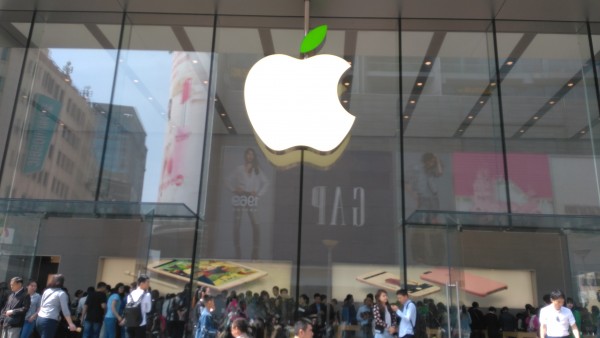SMARTPHONES: Apple Weighing iPhone Move Back to US?
Bottom line: Apple’s reported decision to study moving some iPhone production to the US could have been a form of contingency planning, but is unlikely to happen unless a major trade war breaks out between the US and China.

The headlines have been buzzing these past few days over reports that global tech giant Apple (Nasdaq: AAPL) might be considering moving some of its iPhone production from China to the US. The original report comes from a respectable Japanese publication, and at least on the surface seems somewhat logical in light of Donald Trump’s surprise win in the US presidential election.
After all, Trump, among other things, has been quite vocal on getting companies like Apple to manufacture in the US. He’s also promised to slap a generic 45 percent tariff on goods made in China. Never mind that goods imported from China and elsewhere fall under a wide range of categories, each subject to different tariff rates. Trump is known for throwing out random thoughts, even when they’re far from practical or connected with reality.
But the most striking thing about the latest reports are the timing. According to the reports, which all trace back to an article printed in the Nikkei Asian Review, Apple actually asked one of its top iPhone makers, Taiwan’s Foxconn, to explore the possibility of US-based production back in June. (English article) That was well before Donald Trump had even won the Republican presidential nomination, and when few were giving him a serious chance of becoming president.
Of course we can fast forward to the present, when such a request from Apple would have seemed quite insightful coming so early. But the fact of the matter is that costs in the US are far higher than those in China, and Foxconn probably told Apple that such a plan would only work if the US really did impose huge new tariffs on imported goods. According to the reports, Apple’s other major iPhone manufacturing partner, Taiwan’s Pegatron, declined to formulate a plan.
So, what’s going on here? The fact that Pegatron declined to craft a plan should immediately raise some red flags for people who want to believe this report. After all, it’s not very good business to refuse a request from one of your biggest customers, even if you think it’s a stupid request. Instead, you simply go through the motions and do what the customer wants, and then tell him why the request is impractical.
Trade War Insurance?
There is one scenario that perhaps might make sense, namely that Apple wanted to explore the possibility of moving a limited amount of production to the US specifically involving iPhones for sale to American customers. That might make more sense as a form of insurance in case an anti-globalization administration decided to impose stiff tariffs on goods made abroad for sale in the US.
Based on my own calculations, which admittedly may be flawed, Apple sold about 60 million iPhones in the US last year, accounting for about a quarter of its global total for the year. Thus moving that portion of its production to the US could easily be handled by just one of its suppliers, in this case Foxconn, which would perhaps explain Pegatron’s decision to decline to formulate such a plan.
At the end of the day all of this does seem somewhat hypothetical and perhaps even prudent on Apple’s part, if it really made such a request. After all, companies are supposed to make contingency plans for all kinds of eventualities, and in this case one potential eventuality that Apple may have envisioned has actually come to pass.
But I honestly don’t see the company moving any production back to the US. Some reports are pointing out that China has fired back that two can play at the game of protectionism, and that a Trump decision to place big tariffs on Chinese goods could produce a bloody trade war that would benefit nobody. But then again, nobody really thought Trump could get elected president, so stranger things could happen.
Instead of worrying about a movement of iPhone production to the US, China should probably be more worried about Foxconn’s recent build-up of its operations in India. The fact of the matter is that manufacturers will always look for the most cost-efficient place to make their products, and China is rapidly losing its edge in that regard as labor costs rise and other emerging markets begin to look more attractive.
